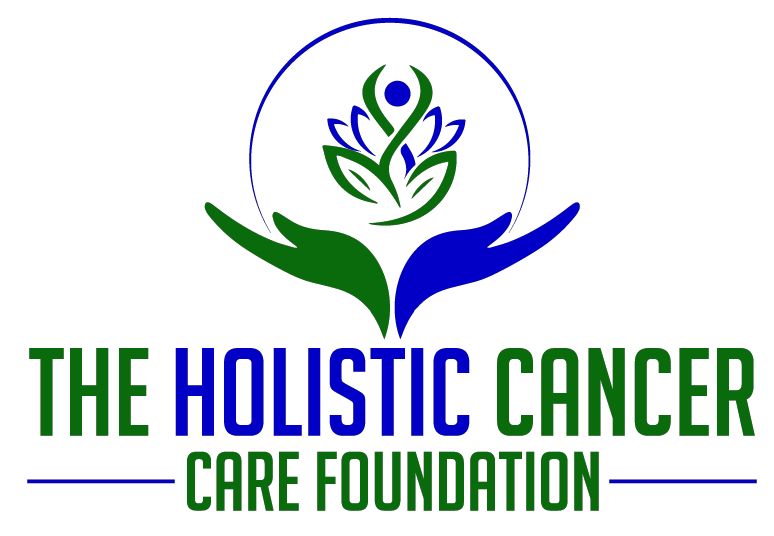Dr. Mindy Pelz, author of “Fast Like A Girl” is a beacon within the alternative healthcare world and offers important information in this short video for all cancer patients.
Dr. Mindy Pelz, author of “Fast Like A Girl” is a beacon within the alternative healthcare world and offers important information in this short video for all cancer patients.
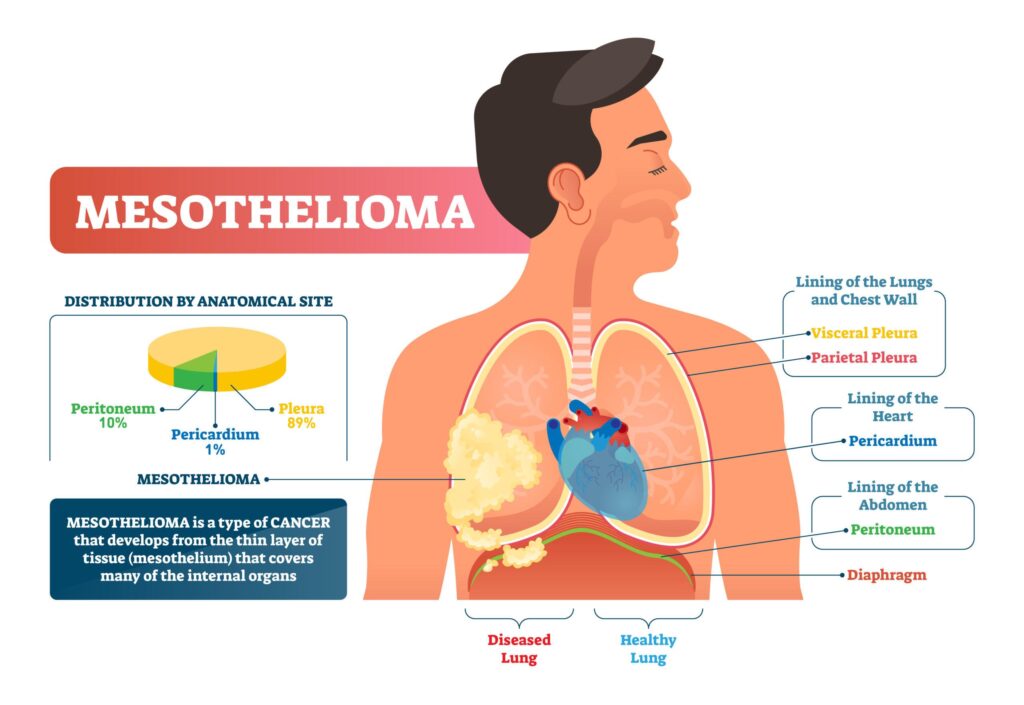
Alternative treatments for cancer patients, particularly those with mesothelioma, focus on complementary therapies that may enhance quality of life and alleviate symptoms. These therapies include acupuncture, which can help manage pain and nausea, and meditation, which supports emotional well-being by reducing anxiety and stress. Nutritional therapy, often tailored by a specialist, aims to boost the immune system and improve overall health.
Additionally, herbal remedies and supplements are sometimes used alongside conventional treatments, though it’s important for patients to consult with their healthcare providers to avoid adverse interactions with their prescribed medications. These alternative treatments are not substitutes for standard care but can be valuable in providing holistic support to patients during their cancer journey.
For more information, visit the following link: Mesothelioma Alternative Therapies.

By Ty Bollinger
August 7, 2024
Share on X

Epigenetics, the study of how our genes can be switched on or off without changing the DNA itself, has completely changed how we understand the interplay between our environment, lifestyle, and genetics. According to researchers, the vast majority of cancer cases can be traced to what are called “epigenetic factors.” If your DNA is your unique “blueprint” for health, then epigenetics is the architect that brings that blueprint to life. This also means that although a person may have a genetic predisposition for a particular disease, it will not express itself unless the right conditions occur for it to do so. This groundbreaking field shows that the choices we make every day can greatly impact our genes, influencing our risk for chronic diseases and our overall health.
The foods we consume can profoundly alter our epigenetic marks, thereby affecting gene expression in various ways. Research has demonstrated the significant impact of dietary components on our genetic makeup. For instance:
Chronic stress is a powerful driver of epigenetic changes, which can increase our vulnerability to various diseases. When the body experiences prolonged stress, it triggers the release of cortisol, a hormone that can significantly alter DNA methylation patterns. This process impacts genes involved in immune responses, potentially leading to weakened immune function. It’s crucial to understand the impact of stress on DNA methylation, as it underscores the need for stress management in disease prevention. For instance, research has illustrated how elevated cortisol levels due to chronic stress can disrupt normal DNA methylation, ultimately compromising the body’s ability to fend off illnesses.
On a more hopeful note, practices such as meditation and mindfulness have been found to positively influence these stress-induced epigenetic changes. Research suggests that regularly practicing these techniques can help counteract some of the negative effects of stress and might even serve as natural alternatives to medications for managing stress and psychological issues. By embracing these healthy habits, individuals have the potential to reduce the harmful effects of stress and enhance their overall well-being.
Regular physical activity plays a significant role in shaping our epigenetic landscape and boosting overall health. When we exercise, our muscles release signaling proteins known as myokines. These proteins influence our gene expression by modifying histone marks, which are critical for regulating gene activity. Research shows that these exercise-induced changes enhance muscle growth and improve metabolism. This means that regular physical activity not only strengthens our muscles but also triggers beneficial epigenetic changes that support better metabolic health and muscle function.
Engaging in aerobic activities like running, swimming, or cycling can lead to important changes in our DNA methylation patterns. These changes are essential for maintaining cardiovascular health. A 2021 study demonstrated that aerobic exercise positively affects these epigenetic markers, leading to improved heart health. By incorporating regular aerobic exercise into our routines, we can effectively alter our DNA’s methylation patterns to promote a healthier heart and reduce the risk of cardiovascular issues.
The quality and duration of our sleep play a crucial role in shaping our epigenetic marks, which in turn affect our overall health. When we experience sleep deprivation, it can disrupt DNA methylation processes, particularly impacting genes related to inflammation. Research published in Frontiers in Neural Circuits (2018) demonstrated that insufficient sleep is associated with negative epigenetic changes, which can elevate the risk of developing chronic diseases. Disruptions in sleep patterns, such as those caused by insomnia or irregular sleep schedules, can lead to long-term epigenetic changes that increase the risk of conditions like cardiovascular disease, obesity, and diabetes.
Conversely, sufficient and high-quality sleep supports epigenetic homeostasis, promoting a balanced epigenetic profile that benefits overall health. Adequate sleep helps regulate genes involved in metabolic processes, immune function, and stress responses. A 2016 study highlighted that good sleep hygiene is associated with more stable and favorable epigenetic markers, contributing to reduced disease risk and improved resilience against stress and inflammation.
In conclusion, the epigenetic revolution underscores the dynamic interplay between lifestyle choices and gene expression. By integrating this knowledge into our daily lives, we can make informed choices that not only optimize our immediate health but also contribute to long-term wellness. That is what we attempt to do here at the Bollinger house, and we hope you’ll do the same.


Jonathan Landsman has been in the health and fitness industry for over 35 years and is committed to educating the public about the importance of eating a healthy, organic (non-GMO) diet; consuming high-quality nutritional supplements, as needed and participating in healthy lifestyle habits like, exercise, detoxification protocols and mind/body work, on a regular basis. In this presentation, Jonathan shares the healing therapies in which you can engage at home to both boost the immune system and kill cancer cells.
INTRODUCTION
When faced with a cancer diagnosis, it’s common to feel a sense of helplessness and despair. The road ahead may seem daunting, and the challenges can feel insurmountable. But what if we told you that you have more power over your health than you might think?
Recent scientific research has unveiled a treasure trove of at-home therapies that can significantly boost your immune system and even directly combat cancer cells. By harnessing the power of these science-backed techniques, you can become an active participant in your healing journey and unlock your body’s incredible potential to fight disease.
Imagine having the tools to create an internal environment that is inhospitable to cancer growth. That’s exactly what resveratrol, a natural compound found in various plants, has been shown to do. A groundbreaking study published in the journal Phytotherapy Research (1) has revealed that resveratrol can enhance your body’s natural defenses, making your immune cells more effective at identifying and destroying cancer cells. By incorporating resveratrol-rich foods or supplements into your diet, you can give your immune system (2) the support it needs to wage a powerful battle against cancer.
But the power of at-home therapies doesn’t stop there. From the immune-boosting benefits of medicinal mushrooms to the detoxifying effects of infrared saunas, there is a wealth of scientifically valid techniques that you can incorporate into your daily life. These therapies work synergistically to support your body’s innate healing mechanisms, giving you the best possible chance at overcoming cancer and reclaiming your health.
However, the journey to healing is not just about physical interventions. It’s also about nurturing your mind and spirit. Engaging in practices like mindfulness, meditation, and stress-reduction techniques can have a profound impact on your mental well-being, helping you to navigate the emotional challenges that often accompany a cancer diagnosis. By cultivating a sense of self-confidence, inner peace and resilience, you’ll be better equipped to face the road ahead with courage and optimism.
Throughout this presentation, we’ll dive deep into the science behind some of the most effective at-home healing therapies. You’ll learn about the cutting-edge research that supports their use and discover practical tips for incorporating them into your daily routine. But more than that, you’ll be empowered to take an active role in your healing process. You’ll discover that you have the power to transform your health and your life, one small step at a time.
As you embark on this transformative journey, remember that healing is not a one-size-fits-all process. What works for one person may not work for another, and that’s okay. The key is to approach this journey with an open mind, a curious spirit, and a deep sense of compassion for yourself. Listen to your body, trust your intuition, and don’t be afraid to experiment until you find what resonates with you.
Far infrared sauna therapy has emerged as a promising tool to support the body’s natural healing processes and bolster immune function in individuals with cancer. Unlike traditional saunas that heat the air around you, far infrared saunas use a type of energy that penetrates deep into the tissues, raising your core body temperature and inducing a detoxifying sweat. Studies have shown that FIR radiation can stimulate cells and tissues, promoting healing and overall well-being (3). Thanks to advancements in technology, far infrared radiation can now be safely and effectively delivered through specialized lamps, saunas, and even clothing made with FIR-emitting fibers. By incorporating FIR into your healing journey, you may experience a range of health benefits, including enhanced immune function, making it a valuable complementary treatment for cancer patients looking to support their body’s natural defenses.
But the benefits of infrared sauna therapy go beyond just enhancing immune function. Research (4) suggests that the heat produced in an infrared sauna can create “heat shock” proteins on the surfaces of cancer cells, making them more vulnerable to attack by the immune system. This means that infrared sauna therapy may not only help prevent the development of cancer by supporting the immune system’s ability to eliminate mutated cells but also potentially reduce the size of existing tumors.
In fact, the American Cancer Society acknowledges hyperthermia (heat therapy) as a promising way to improve cancer treatment, while the National Cancer Institute reports that heat therapy has been shown to reduce tumor size in some cases. A review published in Lancet Oncology in 2002 noted that heat therapy has shown a beneficial effect in controlling certain types of cancer, such as breast cancer and malignant melanoma, and boosting patient survival rates.
Infrared saunas also offer detoxification benefits, helping to eliminate heavy metals and other toxins from the body. By promoting sweating, far infrared saunas can help clear the body of harmful substances like lead, mercury, arsenic, cadmium, pesticides, and herbicides. This detoxification process not only supports overall health but also relieves the burden on the kidneys and liver.
To experience the potential immune-boosting and cancer-fighting effects of far infrared sauna therapy, aim for 3-4 sessions per week, starting with 10-15 minutes per session and gradually increasing to 30-40 minutes as your body acclimates. Remember to stay hydrated and listen to your body, taking breaks as needed.
Most people are aware that regular exercise is beneficial to health. It not only helps maintain a healthy physique and improves cardiovascular function but also plays a crucial role in reducing the risk of developing certain types of cancer. In fact, recent research (5) has shed light on the compelling link between physical activity and cancer prevention, highlighting the importance of incorporating exercise into your daily routine to support your body’s natural defenses and promote overall well-being.
So, how exactly does exercise contribute to cancer prevention? The answer lies in the various mechanisms through which physical activity influences our bodies, making it a formidable force against this devastating disease. One important way exercise helps is by regulating body weight and reducing excess body fat. Studies have shown that maintaining a healthy weight through regular physical activity can significantly lower the risk of several cancers, including breast, colorectal, endometrial, and kidney cancer.
Whether you enjoy walking, jogging, cycling, or resistance training, consistent physical activity can help keep your body composition in check and minimize the risk factors associated with excess body fat. In fact, recent research (6) has revealed that obesity not only raises the risk of cancer but also causes cancer cells to become much more aggressive and prone to metastasis. Scientists have found that obesity causes cytokines, such as TGF-β and leptin, to be released into the bloodstream, which can impair the function of the enzyme ACC1, a central component of fatty acid synthesis. This impairment leads to an accumulation of acetyl-CoA, a fatty acid precursor that can activate genetic programs responsible for increasing metastasis in cancer cells, particularly in breast cancer. By maintaining a healthy weight through regular exercise, you can help reduce the risk of these obesity-related mechanisms that promote cancer cell aggression and metastasis. Postmenopausal women, who are at an even higher risk of developing breast cancer that metastasizes can greatly benefit from losing excess body weight through a combination of exercise and a balanced diet (9).
Exercise also helps to balance hormonal levels, another crucial factor in avoiding cancer. Regular physical activity has been found to decrease circulating levels of estrogen, a hormone that, when in excess, is associated with an increased risk of breast and endometrial cancers. Moreover, exercise can improve insulin sensitivity, reducing insulin and insulin-like growth factor levels, which are known to promote the growth of certain cancer cells.
But the benefits of exercise continue beyond there. Physical activity can supercharge your immune system, enhancing its ability to detect and destroy cancer cells. Exercise boosts the production and activity of immune cells, particularly natural killer cells, which are the body’s first line of defense against cancer. By strengthening your immune response through regular exercise, you give your body the tools needed to fight off cancer cells and maintain optimal health.
Furthermore, proper exercise tackles cancer from another angle by reducing systemic inflammation and oxidative stress, which are implicated in cancer cell growth. Studies (7) have shown that regular physical activity can reduce chronic inflammation and improve antioxidant capacity, minimizing the potential damage to DNA and other cellular structures that can contribute to the development and progression of cancer.
The evidence supporting exercise’s role in cancer prevention is so compelling that clinical guidelines now recommend incorporating physical activity into cancer rehabilitation programs. Ongoing clinical trials continue to investigate exercise’s effects and underlying mechanisms in the context of cancer, further reinforcing its importance in both prevention and overall well-being. By embracing regular physical activity, you can significantly reduce your risk of developing certain types of cancer and improve your overall quality of life. Whether you walk, run, swim, play pickleball or engage in resistance training, every step you take is a step towards a healthier, more resilient you. So, find an activity you enjoy, make it a part of your daily routine, and let the power of exercise be your ally in the fight against cancer. Your body will thank you for the effort.
The mind-body connection is a powerful force in healing, and cultivating mental wellness can profoundly impact your physical health. Techniques like meditation and Emotional Freedom Technique (EFT) tapping have gained recognition in the scientific community for reducing stress, boosting immunity, and promoting overall well-being.
Meditation
In today’s fast-paced world, stress has become an inevitable part of our lives. We’ve all experienced the “fight or flight response” – that automatic, unpleasant chemical reaction in the body triggered by stressful situations. These chemical reactions can have a negative influence on our genes and health, contributing to chronic diseases and weakening our body’s natural defenses against cancer. But what if there was a way to counteract these harmful effects? Enter meditation – a powerful tool that can help reduce inflammation, promote positive gene expression and support overall well-being. Research (8) from the Benson-Henry Institute for Mind/Body Medicine has shown that repetitive yoga poses, prayer, and mantras can actually help to reduce inflammation and the stress-induced gene expression that can lead to chronic disease. By inducing the opposite of the fight or flight response, known as “the relaxation response,” meditation can be a valuable practice for those suffering from chronic health conditions, including cancer. A recent study conducted by researchers from the Beth Israel Deaconess Medical Center and Massachusetts General Hospital investigated the effects of meditation on stress. The study involved26 adults trained in a specific type of meditation that included repeating mantras, deep breathing, and training to help ignore intrusive thoughts. The participants’ blood test results showed positive changes to their gene expression, creating the exact opposite environment of the fight or flight response in the body. Genes associated with inflammation were switched off, while those connected with health-sustaining processes like mitochondrial function, insulin secretion, energy metabolism, and telomere maintenance were switched on.
Canadian researchers (9) have documented the connection between meditation, healthy cellular telomere length, and cancer survival, further highlighting the potential benefits of this practice for those battling cancer. While the positive health effects of meditation are more pronounced in long-term meditators, even newcomers can experience significant benefits. These studies show that meditation is far more than just a relaxation technique; it has a quantifiable positive effect on the body. The health benefits of meditation include protection against anxiety, depression, hypertension, cardiovascular disease, cancer, and many other conditions caused by chronic emotional and mental stress.
Incorporating meditation into your daily routine doesn’t have to be daunting. Even 10 to 20 minutes of meditation or spiritual contemplation twice daily can yield significant, measurable, positive health effects. Whether you practice yoga, repeat mantras, or engage in deep breathing exercises, the key is to find a method that resonates with you and make it a consistent part of your life.
As you embark on your meditation journey, remember that the benefits grow stronger with practice. Dedicating time to this powerful practice promotes relaxation, actively supports your body’s natural healing processes and strengthens your defenses against cancer. So, find a quiet space, close your eyes, and let the power of meditation work its magic on your mind, body, and spirit.
Stress Reduction
It’s no secret that stress has many detrimental effects on the body. High stress levels can lead to an increased risk of heart disease, inflammation, gastric upset, and more. But what about stress and cancer? Can chronic stress actually cause cancer? A study (10) conducted in Japan evaluated the association between perceived stress and the risk of developing cancer. Alarmingly, researchers found that those with a consistently high perceived stress level had an 11% greater cancer risk. This correlation was found in men who had no family history of cancer. However, the risk was more substantial among men with other health risk factors, like smoking and obesity. Other studies have also suggested an association between chronic stress levels and cancer risks, revealing a connection between work stress and lung, esophageal, and colorectal cancer, as well as a link between PTSD or social isolation and ovarian cancer.
So, can you get cancer from stress, or do other factors come into play? Although there seem to be strong links between stress and cancer, the answer is debatable. Many researchers believe it’s not stress that causes cancer – it’s what it does to your body. When you’re under stress, or your mind perceives danger, two things happen: your fight-or-flight response turns on, and the stress hormone cortisol is released. When your body dwells in a high-stress state, continuous stress hormones can cause harmful changes in your body. Consequently, chronic stress can alter your metabolism, weaken your immune system, and even damage your DNA. Furthermore, chronic stress often leads to unhealthy behaviors like smoking, overconsuming alcohol, and eating unhealthy foods. While it’s difficult to prove that stress can cause cancer, the harmful effects of chronic stress are undeniable. And because of how it affects your body, high stress can result in a higher cancer risk.
So, what can you do to minimize your cancer risk? One of the most powerful tools in combating chronic stress is mindfulness. By practicing mindfulness techniques, such as deep breathing, meditation, or yoga, you can train your mind to stay focused on the present moment rather than dwelling on past regrets or future worries. When you learn to observe your thoughts and emotions without judgment, you can develop a greater sense of calm and resilience in the face of life’s challenges. Another effective strategy for reducing stress is to prioritize self-care. This means nurturing your body, mind, and spirit through activities that bring you joy and relaxation. Whether taking a warm bath, reading a good book, or spending time in nature, making self-care a regular part of your routine can help you build a strong foundation of inner peace and well-being.
In addition to mindfulness and self-care, it’s important to cultivate a strong support system. Surrounding yourself with loving, supportive people who uplift and encourage you can make a world of difference when managing stress. Don’t be afraid to reach out for help when you need it, whether it’s talking to a trusted friend or family member, joining a support group, or seeking the guidance of a therapist or counselor.
Finally, healthy lifestyle habits can go a long way in reducing chronic stress and minimizing cancer risk. This includes eating an organic, nutrient-rich diet, regularly exercising, and prioritizing good sleep hygiene. By nourishing your body with the right foods, moving your body in ways that feel good, and giving yourself the rest and restoration you need, you’ll be better equipped to handle the stresses of daily life and maintain optimal health. Remember, reducing chronic stress is a journey, not a destination. It requires patience, self-compassion, and a willingness to experiment with different tools and techniques until you find what works best for you. By prioritizing stress reduction and incorporating these strategies into your daily life, you’ll be taking a powerful step towards minimizing your cancer risk and cultivating a greater sense of overall well-being.
Emotional Freedom Technique
Emotional Freedom Technique (EFT) is a clinical procedure designed to relieve psychological and physical distress. By combining the cognitive reprocessing benefits of exposure and acceptance therapy with the energetic disturbance releases associated with acupuncture and other energy therapies, EFT can help you navigate the complex emotions and physical symptoms you may be experiencing. Research (11) has shown that EFT can be highly effective in addressing a wide range of conditions, including psychological distress (such as posttraumatic stress disorder, phobias, anxiety, and depression) and physical conditions (like pain and treatment-related side effects). In fact, more than 60 research articles in peer-reviewed journals report a 98% efficacy rate with the use of EFT. By learning and practicing EFT tapping, you can take an active role in your own care and recovery process. This simple and non-invasive technique can be easily self-administered, empowering you to manage your emotional and physical well-being whenever you need it. As you tap on specific acupressure points while focusing on your thoughts and feelings, you may find that your distress begins to diminish, allowing you to approach your cancer journey with greater resilience and peace of mind.
To harness the power of mental wellness techniques, set aside 10-20 minutes each day for meditation, visualization, or EFT tapping. Find a quiet, comfortable space and focus on deep, relaxed breathing as you engage in your chosen practice. Consistency is key, so make these techniques a regular part of your daily routine.
Modified citrus pectin (MCP) is a special type of fiber found in the peel and pulp of citrus fruits, such as oranges and lemons. What makes MCP unique is that it has been changed to allow your body to absorb it better and make it more effective in fighting cancer. One study12 found that MCP could slow down the growth and spread of different cancer cells, including bladder cancer. The researchers discovered that MCP works by reducing the amount of a protein called galectin-3, which is found in high levels of bladder cancer and is linked to poorer outcomes for patients. Another study13 showed that MCP can also help boost your immune system. The researchers found that MCP activated different types of immune cells, including T-cells, B-cells, and natural killer (NK) cells, which are all important in fighting cancer. The activated NK cells even killed leukemia cells in a laboratory setting. Scientists believe that MCP’s ability to strengthen the immune system is due to its special type of carbohydrate molecules.
These studies suggest that MCP could be a promising natural substance for both preventing and treating various types of cancer. It works in two ways: by directly slowing down cancer growth and by enhancing your body’s natural defenses. As a type of dietary fiber, MCP is safe and easily available, making it a valuable addition to your cancer-fighting toolkit. To incorporate MCP into your at-home healing routine, look for a high-quality, standardized supplement and follow the manufacturer’s recommended amounts. Be sure to consult your holistic healthcare provider before starting any new supplement to ensure it’s safe and appropriate for your needs.
The foods we eat can profoundly impact our immune function and overall health, and adopting an anti-inflammatory, plant-based diet is a crucial step in promoting wellness and supporting your body’s natural defenses against cancer. By focusing on nutrient-dense, whole foods and minimizing processed, pro-inflammatory fare, you can create an internal environment that supports healing and resilience. Recent studies have shown that plant-based diets are associated with a reduced risk of various types of cancer. A prospective cohort study14 published in The American Journal of Clinical Nutrition examined the relationship between plant-based diet indices and prostate cancer risk. The study, which included 47,239 men, found that greater overall plant-based consumption was associated with a significantly lower risk of fatal prostate cancer. Moreover, greater consumption of a healthful plant-based diet was associated with lower risks of total and lethal prostate cancer in men aged over 65 years. Another meta-analysis15 published in Frontiers in Public Health investigated the relationship between plant-based diets and the risk of digestive system cancers. The analysis, which included 3,059,009 subjects, concluded that plant-based diets were protective against the risk of digestive system neoplasms. Subgroup analyses demonstrated that plant-based diets reduced the risk of cancers, especially pancreatic, colorectal, rectal, and colon cancers. The protective effects of a plant-based diet stem from its ability to reduce oxidative stress and inflammation in cells, prevent DNA damage, inhibit cell proliferation, angiogenesis, and metastasis. The combination of foods in this dietary pattern, such as colorful fruits and vegetables, whole grains, legumes, nuts, and seeds, work together to create a powerful and manageable approach to lowering cancer risk.
One key – yet often overlooked – aspect of an anti-inflammatory diet is avoiding sugar and high-temperature cooking methods. Excessive sugar consumption has been linked to increased inflammation, obesity, and insulin resistance, all of which can contribute to the development and progression of cancer. High-temperature cooking methods, such as grilling and frying, can produce advanced glycation end products (AGEs), which promote inflammation and oxidative stress in the body. By minimizing your intake of sugary foods and opting for gentler cooking methods like steaming, boiling, or lightly sautéing, you can help reduce the formation of AGEs and protect your cells from damage.
Some of the most potent anti-inflammatory foods to include in your plant-based diet are:
To tap into the power of anti-inflammatory nutrition, aim to fill your plate with a rainbow of colorful fruits and vegetables at each meal. Obviously, organic varieties are a better choice to avoid unwanted chemicals. Choose organic whole grains over refined carbohydrates and opt for proteins like legumes, nuts, and seeds. Incorporate healthy fats from sources like avocados, olive oil, and coconut oil, and season your meals with anti-inflammatory herbs and spices like turmeric, ginger, and garlic.
Intermittent fasting (IF) has gained significant attention in recent years for its potential health benefits, including its ability to boost immunity and combat cancer cells. This eating pattern involves alternating fasting periods with eating periods, typically on a daily or weekly schedule. A review (16) published in the Journal of Diabetes Research explored the health-promoting effects of intermittent fasting. The study found that intermittent fasting can effectively reduce weight, fasting insulin levels, and blood glucose levels while also increasing the antitumor activity of medicines and improving neurological conditions such as memory deficits. Additionally, intermittent fasting activates several biological pathways that promote cell renewal, prevent cancer cell growth and spread, and delay aging.
Another study published in the journal Scientific Reports investigated the anticancer effect of intermittent fasting in individuals with metabolic syndrome, a condition characterized by central obesity, insulin resistance, elevated blood pressure, and dyslipidemia, a significant risk factor for several common cancers. The pilot study involved 14 subjects with metabolic syndrome who fasted from dawn to sunset for more than 14 hours daily for four consecutive weeks. The researchers collected serum samples before, during, and after the fasting period and performed proteomic analysis. The study found a significant increase in the levels of several tumor suppressor and DNA repair proteins during and after the fasting period, compared to the levels before the fasting period. They also observed a significant reduction in the levels of tumor promoter proteins during and after the fasting period. Furthermore, fasting from dawn to sunset for four weeks induced an anti-diabetes and anti-aging response.
To incorporate intermittent fasting into your at-home healing routine, start with a simple 12/12 protocol, which involves fasting for 12 hours (including your sleep time) and eating within a 12-hour window. As your body adapts, you can gradually increase your fasting window, aiming for a consistent schedule that works with your lifestyle. Be sure to stay hydrated during your fasting periods and focus on organic, nutrient-dense, whole foods during your eating windows.
Nature offers many immune-boosting herbs and supplements that can help strengthen your body’s natural defenses and support your healing journey. Some of the most powerful immune-boosting substances include:
Reishi Mushroom
Reishi, a medicinal mushroom long used in traditional Chinese medicine, has been claimed to help prevent and treat many diseases, including cancer. A review (17) of clinical studies on medicinal mushrooms in cancer care found that most studiesshowed positive effects. In addition to its potential cancer-fighting properties, reishi mushroom has been studied for its immunomodulatory, antioxidant, and anti-inflammatory effects. It has been used to help manage cardiovascular diseases, diabetes, liver disease, and respiratory conditions such as asthma and bronchitis. Reishi mushroom is also believed to have adaptogenic properties, helping the body cope with stress and fatigue.
Turkey Tail Mushroom
Another medicinal mushroom, turkey tail, has gained attention for its potential to regulate the immune system. The review mentioned above found that similar to reishi, the turkey tail also showed favorable results in cancer care. These benefits included:
While these findings are promising, the review also noted that more research is necessary before healthcare providers can confidently recommend medicinal mushrooms as a standard part of cancer treatment. Nonetheless, the potential benefits of these natural substances in supporting cancer patients during their healing journey are worth highlighting and exploring further. Turkey tail mushrooms have also been studied for their potential to enhance gut health by promoting the growth of beneficial bacteria and suppressing harmful ones. Its rich content of polysaccharides, particularly polysaccharide-K (PSK), has been linked to its immune-boosting and antitumor effects. Turkey tail mushroom has also shown promise in supporting the treatment of HPV infections and improving insulin resistance in people with type 2 diabetes.
Cat’s Claw
This herb from the Amazon rainforest has been used for centuries to boost immunity and reduce inflammation. A study (18) found that two species of cat’s claw, Uncaria tomentosa and Uncaria guianensis, both have strong antioxidant and anti-inflammatory effects, with U.guianensis being more potent. Cat’s claw has also been traditionally used to treat digestive issues, such as ulcers and inflammatory bowel disease, as well as arthritis and other inflammatory conditions. Its alkaloids and flavonoids are believed to contribute to its anti-inflammatory, immunomodulatory, and neuroprotective properties. Some studies suggest that cat’s claw may help alleviate symptoms of osteoarthritis and rheumatoid arthritis, as well as improve cognitive function in older adults.
Vitamin D
Often called the “sunshine vitamin,” vitamin D is crucial for a healthy immune system and has been linked to better outcomes in cancer patients. A review19 highlighted that vitamin D deficiency is widespread and associated with an increased risk of common cancers, autoimmune diseases, high blood pressure, and infectious diseases. The review suggested that a blood level of 25-hydroxyvitamin D above 30 ng/mL is needed for optimal health benefits – although holistic doctors often recommend much higher levels (between 60 and 80 ng/mL). Vitamin D is also essential for maintaining strong bones and teeth, as it helps the body absorb calcium and phosphorus. It has been associated with a reduced risk of falls and fractures in older adults. Additionally, vitamin D has been linked to improved cardiovascular health, better mood, and a lower risk of certain autoimmune diseases, such as multiple sclerosis and type 1 diabetes.
Zinc
This essential mineral plays a key role in immune function, and low levels have been linked to a weakened immune response. A review (20) found that cancer patients of all types often have zinc deficiency, which is related to more severe disease and lower survival rates. The review also highlighted zinc’s ability to kill cancer cells and suppress tumor growth in laboratory and human studies. Zinc is also crucial for wound healing, as it plays a role in collagen synthesis and cell proliferation. It is essential for proper growth and development in children, and it supports reproductive health in both men and women. Zinc has been shown to have antioxidant properties and may help protect against age-related macular degeneration, a leading cause of blindness in older adults.
Selenium
Another important mineral, selenium, has been shown to boost immune function and protect against oxidative stress, a type of cell damage. A review (21) published in the journal Molecular Nutrition & Food Research investigated the potential chemo-preventive effect of selenium on prostate and colorectal cancers, which are among the most common cancers worldwide.
The review found that several observational studies support the idea that selenium may help prevent prostate and colorectal cancers. The results suggest that the effect may be different between men and women and between smokers and non-smokers, but more research is needed to confirm this.
Selenium is also important for thyroid function, as it is a component of several enzymes involved in thyroid hormone metabolism. It has been studied for its potential to improve fertility in both men and women, and some research suggests that it may help reduce the risk of certain pregnancy complications, such as preeclampsia and gestational diabetes. Additionally, selenium has been linked to improved cognitive function and a lower risk of age-related cognitive decline.
To add these immune-boosting substances to your at-home healing plan, look for high-quality supplements and follow the recommended amounts. Always talk to your holistic healthcare provider before starting any new supplement to ensure it’s safe and suitable for your needs.
Why now is the best time to take action…
As you navigate the challenges of cancer, remember that you have the power to take an active role in your healing journey. Incorporating these science-backed, at-home therapies into your daily routine can help you tap into your body’s innate ability to boost immunity, combat cancer cells, and promote overall well-being. From the detoxifying benefits of far infrared sauna therapy to the immune-modulating properties of medicinal mushrooms, these techniques offer a wealth of potential to support your healing process. So, why not nourish your body with anti-inflammatory foods, engage in stress-reducing practices like meditation and EFT tapping, and harness the power of immune-boosting supplements?
Remember, healing is a journey; small, consistent steps can lead to profound changes over time. Trust in your body’s incredible capacity to heal and surround yourself with a supportive network of loved ones and holistic healthcare professionals who can guide and encourage you along the way. Now is the time to take a deep breath, trust in the process, and embrace the power of these at-home healing therapies.
With dedication, persistence, and an open heart, you’ll be well on your way to boosting your immunity, combating cancer cells and cultivating a greater sense of well-being – one day at a time.
REFERENCES
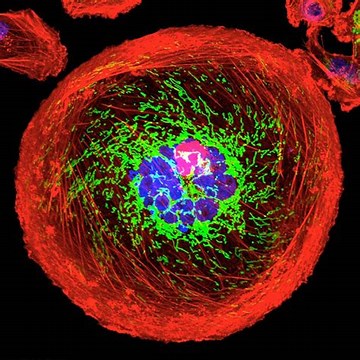
The key to a truly effective anti-cancer disease protocol is its ability to clear a patient of those insidious cancer stem cells. The current big three of the “standards of care”, chemo, radiation and surgery, do not effectively address these circulating stem cells and, as a result, the cancer typically comes back at some point down the road in a more aggressive form. Below is the link to an insightful resource from Dr. Jockers on the foods you can incorporate as part of your treatment plan that effectively deal with this critical aspect of cancer.
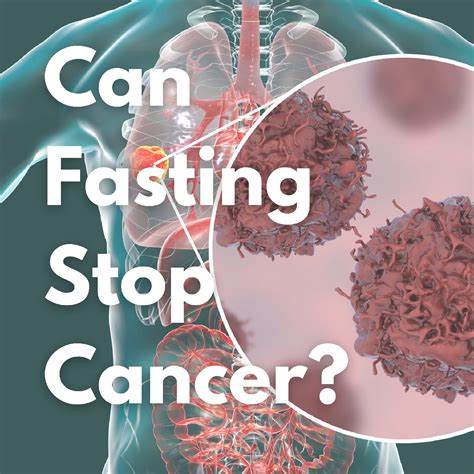
Probably the most effective and inexpensive way to improve your health and minimize the likelihood of developing a chronic disease, including cancer, is fasting/feasting. The clinical benefits are almost too good to be true, but there seems to be an associated mental hurdle which is difficult for many individuals to overcome. We have evolved to have food readily available most all the time and have become grazers. The thought of going for any extended period of time without food is difficult to accept, but once you ease into it, the regimen is a breeze and the benefits become obvious. Not many cost-free health alternatives can claim to support fat burning and weight loss, regulate blood sugar levels, control cholesterol and triglyceride levels, reduce the risk of coronary disease, increase lean muscle mass, stimulate human growth hormones, activate stem cell production, reduce the risk of cancer and enhance autophagy, a critical immune function, all at the same time.
For a complete tutorial on fasting, click on the link below:
https://www.doctorkiltz.com/intermittent-fasting/
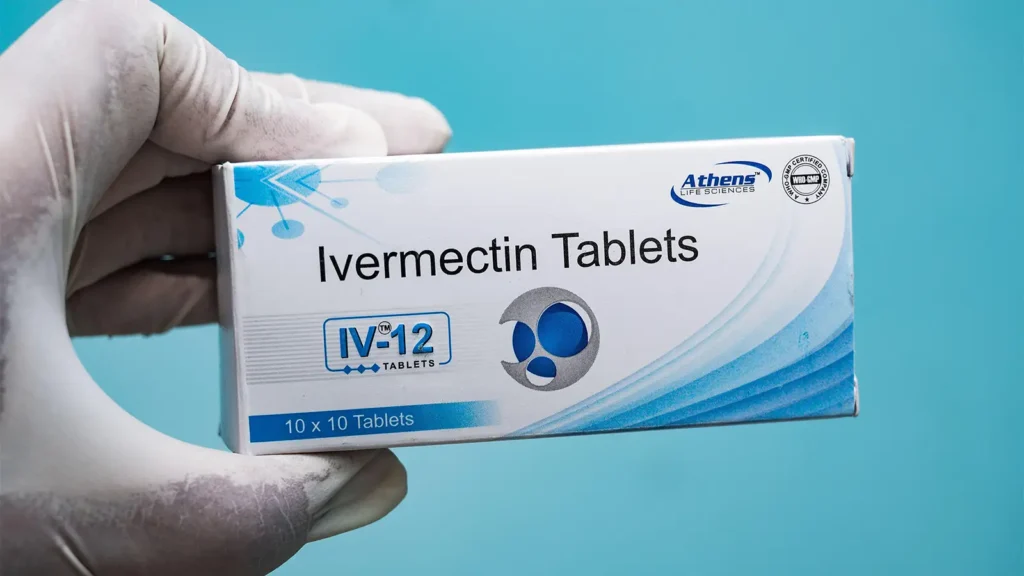
There has been an increasing focus on these anti-parasitic drugs as possible effective treatment protocols for cancer. In this video, Dr. Kathleen Ruddy, a cancer surgeon, researcher and author, shares her experience with Ivermectin in the treatment of advanced stage cancers. It is a riveting discourse on her early exposure to a number of patients who had seemingly miraculous recoveries from various stage 4 cancers and a bit of an indictment of our existing medical system’s apparent lack of interest and support for these off-label treatments. Click the link below for the presentation:

Our friends at The Cerebral Palsy Guide asked us to share some critical information on the link between cerebral palsy (“CP”) and cancer. It appears that those who suffer with CP have a 64 times likelihood of developing cancer. Please check out the article below and help advance their mission:
Cerebral Palsy and Cancer | Find Help for Your Child Now (cerebralpalsyguide.com)

Dr. Michael Greger, the author of the best-selling book “How Not To Die”, was instrumental in both my recovery from stage 4, metastatic melanoma and my continued good health. In this video, he explores the dramatic effects different nutritional strategies can have on cancer. He confirms that 95% of cancers are caused by lifestyle and environmental choices and points to nutrition as having a whopping 35% effect on the prevention and cure of cancer. Enjoy!
https://nutritionfacts.org/video/the-best-diet-for-cancer-patients/

The video below presents a collection of various foods that I have continually run across during my extensive research into cancer as being both preventive and curative. I agree wholeheartedly with the list, with the exception of fatty fish. I agree with the effect Omega-3 fatty acids found in fish have on cancer, but there are other risks with eating fish that I believe far outweigh the benefit. In fact, fish get their Omega-3 from algae, so why not go directly to the source instead of exposing yourself to the risks associated with fish as an unnecessary intermediary? There are vegan Omega-3 supplements that produce the important anti-cancer benefits, but without having to eat fish. Click the link below:

